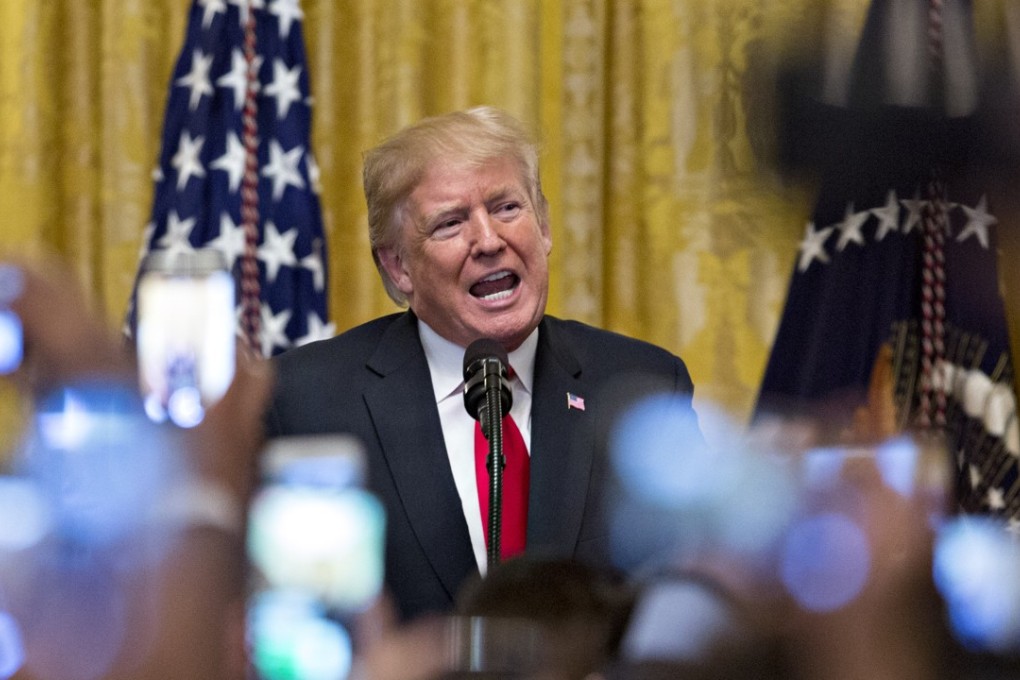US-China trade war heats up as Beijing hits back at US President Donald Trump’s new tariffs
Beijing retaliates with duties on US$60 billion of US goods due to come into effect on Monday

China has hit back at fresh US tariffs on Chinese goods, announcing its own additional duties on US$60 billion worth of American imports as the trade war escalates between the world’s two biggest economies.
The new tariffs – of 5 per cent and 10 per cent – will come into effect on September 24, the same day as the US’ new duties, the Chinese Ministry of Finance said in a statement on Tuesday.
Trump also threatened that if China retaliated this time then the US would “immediately pursue phase three”, which would mean imposing further tariffs on another US$267 billion worth of products – covering almost all Chinese exports to the US.
China’s Ministry of Commerce said earlier on Tuesday it would be forced to take “synchronised countermeasures” to defend its own interests against the latest US tariffs.
In a statement on Tuesday, the ministry said the tariffs announced by Trump a day earlier had “added new uncertainties” to talks between the two sides. It also said China hoped the US side could “be aware of possible negative consequences from such bad behaviour”.